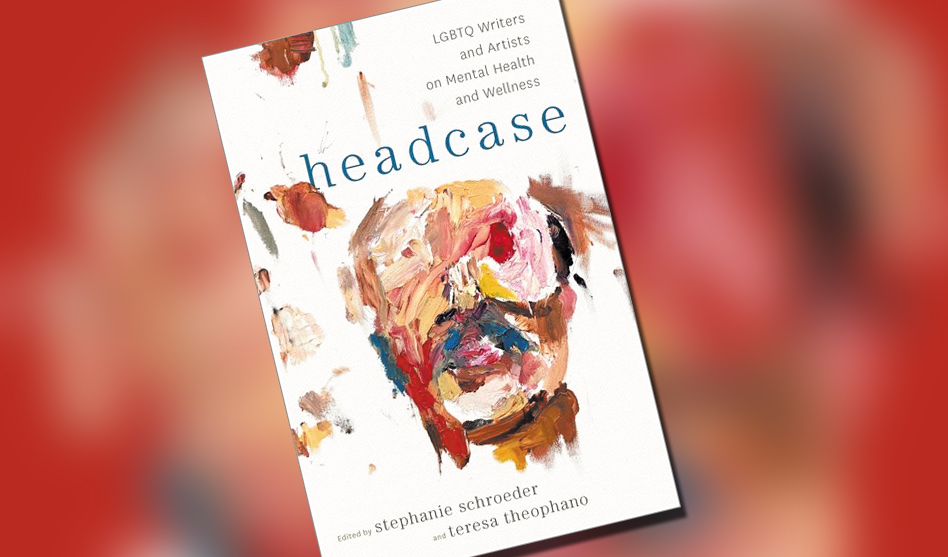Essays on getting right in your head
Headcase: LGBTQ Writers and Artists on Mental Health and Wellness, edited by Stephanie Schroeder and Teresa Theophano (Oxford University Press 2019) $29.95; 287 pp.
If someone on the street saw you today, he might think you were at the peak of health. He can’t see what’s inside, though.
“Real or perceived minority status and… disenfranchisement make us vulnerable to being labeled as sick,” write Stephanie Schroeder and Teresa Theophano, editors of Headcase. In other words, living as a member of the LGBTQ community may affect your mental health. Furthermore, Christian Huygen, one of the contributors to this book, says, “Research shows that, while LGBTQ people seek mental healthcare more often than our non-LGBTQ counterparts, we are more likely to leave care prematurely…”
Today, therapy is easier to get, if you feel hopeless or empty, but not all practitioners understand LGBTQ health issues.
Mainstream healthcare has only relatively recently decided that homosexuality was not a disease in need of a “cure.” Too many healthcare practitioners don’t understand that insurance is sometimes iffy. Never mind those who believe conversion therapy is the right fix.
Have we evolved, when it comes to mental wellness for the LGBTQ community? You might think so, after reading the chapters here: Of a lesbian who received comfort from a therapist when her long-time friend wouldn’t stop bringing religion up. Of veterans who no longer have to conceal their sexuality. On fitting in with the local Mom’s Group when you’re the only queer mother, and, by the way, you’ve already conquered postpartum depression. On being a lesbian daughter of a lesbian mother who was hospitalized against her will decades ago, only because she dared love another woman.
“Mental illness can be scary for anyone,” writes contributor Lance Hicks. “You choose between asking for help, knowing you’re being judged, or suffering alone.”
That latter option doesn’t sound like so much of an option, does it? No, and Headcase — a title that comes from reclamation of a negative word — takes a real-life look at the first parts of Hicks’ sentiments: mental health, mental help and the history of it all within the LGBTQ community.
What you’ll learn won’t come easy, though. There are several distinct kinds of chapters inside Headcase, some easier to read than others. Readers will find arty things, poetry and drawings here. There are mini-memoirs of relevance. You’ll find short stories, too, many of which have a disjointed feel, as though you just wandered into a half-conversation. There are chapters that are plainly meant for physicians, which might not appeal to laypersons. And you’ll find history in this book, some of which — fair warning — will chill you.
Overall, Headcase could offer comfort, but it’s not a substitute for a doctor. It’s got subtle advice, but it’s not a therapist. It’s not even a good stand-in for a sympathetic friend, but if you need direction, it’s worth a shot.
— Terri Schlichenmeyer












